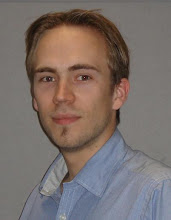 After years of arguments, reforms and failed referendums the Treaty of Lisbon, originally planned to be a constitutional treaty, finally came into force on the first of December 2009. On the first of January 2010 Spain entered the new decade as the first EU-Member State to preside the European Council in the post-Lisbon era. For a country in deep economic crisis this important role of Spain in the first half-year of 2010 is a source of pride and confidence. After traditionally eating the 12 grapes to the tune of the chimes of the clocktower of the Casa de Correos at the Puerta del Sol in Madrid, Spaniards in front of the TV screens across the nation witnessed how the facade of the Casa de Correos became the screen for their hopes connected to the EU-Presidency. In an impressive light show the flags and well-known monuments of all 27 Member States were consecutively projected onto the old building, culminating in the publication of the beginning of Spain's Presidency.
After years of arguments, reforms and failed referendums the Treaty of Lisbon, originally planned to be a constitutional treaty, finally came into force on the first of December 2009. On the first of January 2010 Spain entered the new decade as the first EU-Member State to preside the European Council in the post-Lisbon era. For a country in deep economic crisis this important role of Spain in the first half-year of 2010 is a source of pride and confidence. After traditionally eating the 12 grapes to the tune of the chimes of the clocktower of the Casa de Correos at the Puerta del Sol in Madrid, Spaniards in front of the TV screens across the nation witnessed how the facade of the Casa de Correos became the screen for their hopes connected to the EU-Presidency. In an impressive light show the flags and well-known monuments of all 27 Member States were consecutively projected onto the old building, culminating in the publication of the beginning of Spain's Presidency. While Spain's youth spent the night on the streets to celebrate the new year until the early morning hours, the accurately prepared clockwork of Spanish initiatives for the EU policy in the first half of 2010 slowly kicked into gear. Apart from hackers replacing President José Luis Rodríguez Zapatero's welcome video on the official homepage of the Presidency (http://www.eu2010.es/) with a speech by Mr. Bean for a couple of minutes, things are so far running pretty smoothly.
On the foreign policy side, Miguel Ángel Moratinos is the first Foreign Minister that will have to share his role during the Presidency with the newly appointed High Representative for Foreign Affairs and Security Policy of the European Union, Baroness Catherine Ashton. While the public and the press reacted with incomprehension when Baroness Ashton was appointed to represent the EU's common foreign policy, perceiving the nomination as a sign of lacking commitment to strengthen the common foreign policy through nominating a globally known and respected politician, the tandem is so far working rather well. From the perspective of European - Latin American relations we can still expect to see a lot of movement stirred by those two in the months to come.
One of the first foreign policy initiatives of Spain during it's Presidency is the furthering of rapprochement between the EU and Cuba. Even though these efforts sustained a small setback through the repulse of a Spanish parliamentarian at the airport of Havana by Cuba, things are developing in the right direction. Forging closer ties to Cuba would reflect that the EU is aware of the changes and the complex political realities in Latin America and the Caribbean. Interdependence and integration is steadily advancing on the continent, even though the process is constantly being complicated by tensions between different groups of states in Latin America. Dividing the continent into relished partners (Brazil, Chile, Argentina) and somewhat shady states to be kept at bay (Venezuela, Cuba, Honduras) does not reflect the realities on the ground. Even though the Plan Colombia and the aggressive rhetorics of ALBA states highlight the political faults of the region, bridges are being built at the same time. The UNASUR process, including Brazil and Venezuela, is suffering frequent setbacks but is still slowly advancing. Colombia and Ecuador are slowly reestablishing diplomatic ties after the rupture resulting from a Colombian air strike on Ecuadorian territory and Latin America at least tried to forge a consensus vis-à-vis the coup in Honduras last year. Thus the foreign policy of the EU should try to address the region as a whole and refrain from singling out inconvenient states.
After this first step in the right direction Spain is aiming at dissolving the blockade of the negotiations of the treaties of association between the EU and Mercosur and the Andean Community. Zapatero declared that relations to Latin America are at the top of his list in foreign policy, stating that "If there is a Presidency that is looking towards Latin America, it has to be ours. We have to seize the opportunity." Lets hope that the Spanish Presidency will live up to it's words.













